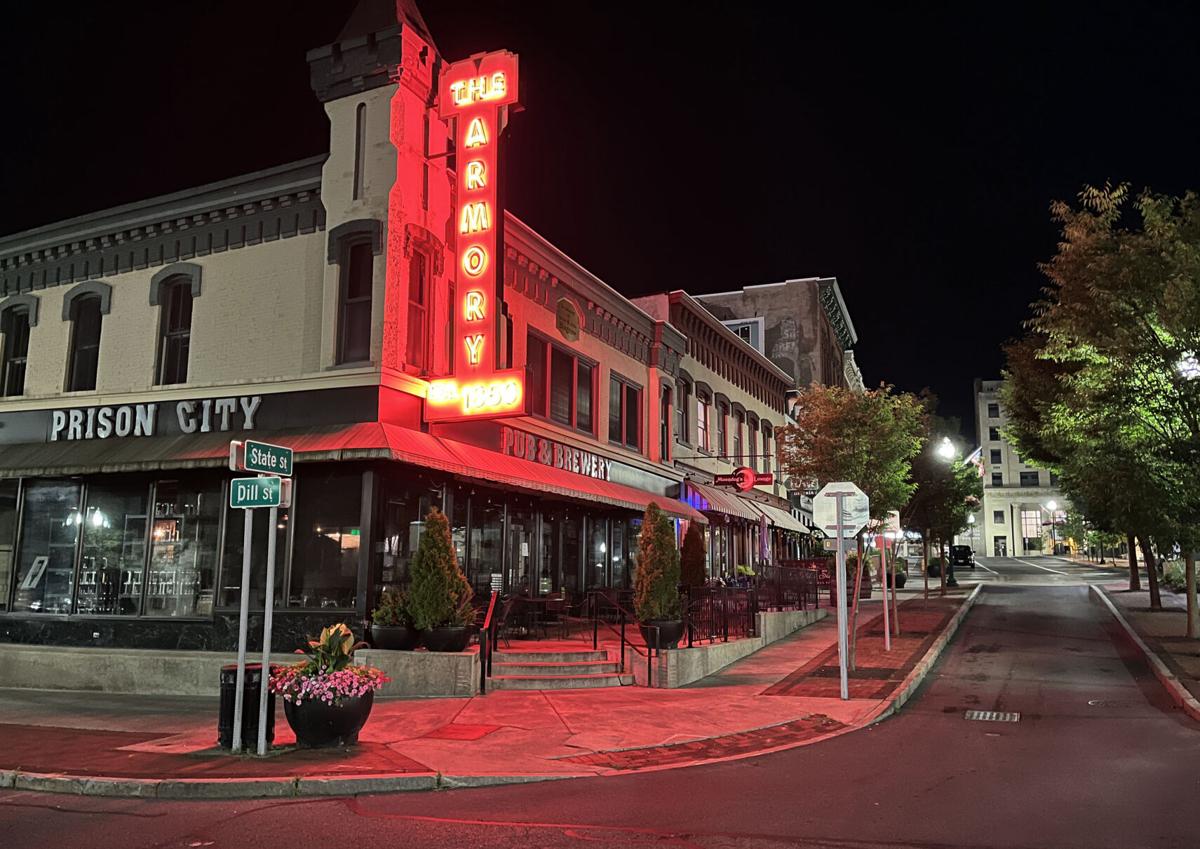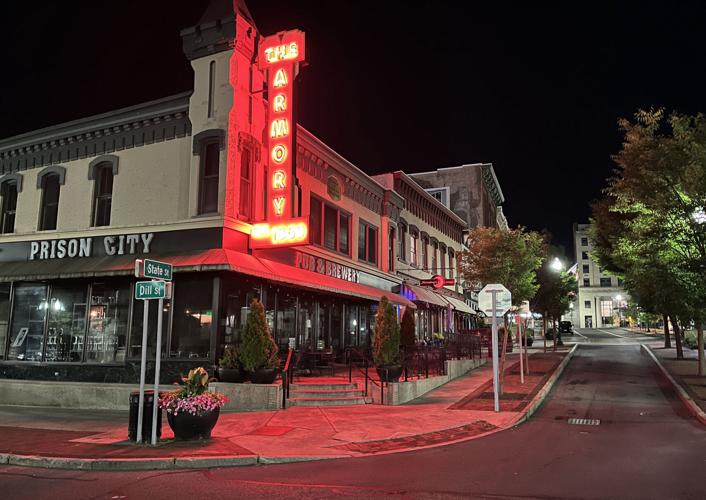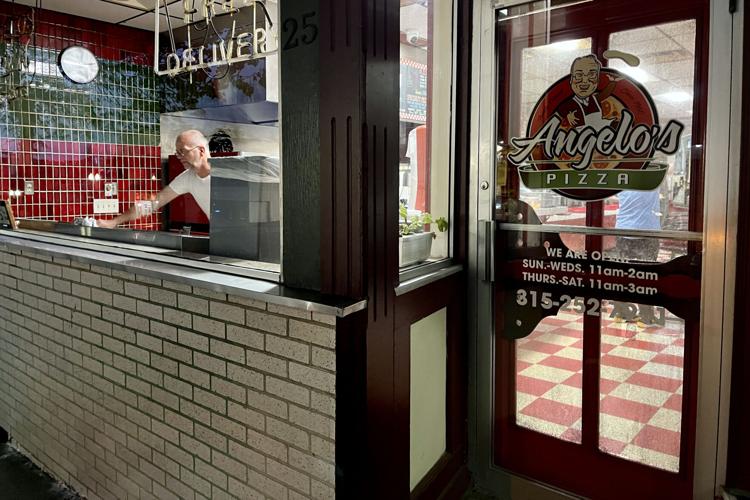Life has mostly returned to normal since COVID-19 — but not nightlife.
across the country are than they did before the pandemic, and Auburn is no exception.Â
Five years ago, there were more than a few options for customers looking to get a drink or grab a bite downtown after 10 p.m.
Now, there are just a few — if any.
"Come 10 at night, everything is extremely quiet," Downtown Auburn Business Improvement District Executive Director Stephanie DeVito said. "Sometimes you can't even get a slice of pizza."
People are also reading…
DeVito, and several Auburn bar and restaurant owners, told Ë®ąűĹÉAV they believe there are two main reasons the city's nightlife is retiring so early these days. First, they said, businesses are having trouble retaining the staff they require to keep late-night hours. And second, after years of curfews and other restrictions during COVID-19, customers aren't going out or staying out like they used to.
Understaffing at bars and restaurants has been widely reported the last three years. According to the National Restaurant Association, about two-thirds of those businesses fewer employees than they need. In Auburn, DeVito said, hiring and maintaining staff has been "a real struggle" for many. The results can be longer waits for tables and food, fewer menu options — and earlier closing hours.
"I believe if the staffing was there, we'd see bars and restaurants staying open later," DeVito said. "I don't think it's a lack of wanting to, it's being logical with what they have so they don't lose money."
At Parker's Grille & Tap House at 129 Genesee St., one consequence of understaffing is that the restaurant might have to close on random weekdays, manager Carol Hendrickson told Ë®ąűĹÉAV. Cooks, in particular, have been hard to find since the pandemic began, she said. The more skilled ones took jobs with benefits and 40 hours a week, compared to the 55 or 60 they work in kitchens like Parker's.
Before COVID-19, Hendrickson said, the popular downtown Auburn restaurant served food until midnight and alcohol until 2 in the morning. Sometimes she wouldn't get home until 5 a.m.
"Auburn's a different animal," said Hendrickson, who previously managed the Parker's in Geneva and Seneca Falls. "Merry-Go-Round, Doubledays — those were crazy nights."Â
Now, Parker's serves food until 9 p.m. on weekdays and 10 p.m. on weekends. Bartenders, meanwhile, stay as long as the customers do. But that's only as late as midnight on weekends, Hendrickson said — because, for the last three years, they just haven't been staying. For awhile they were afraid of being indoors with strangers, and then they became accustomed to staying home instead.
Ultimately, it was that loss of late-night business, not staffing, that led Parker's to close earlier, Hendrickson said. If anything, the new hours make the bar and restaurant's employees happier.Â
"It's worked out great," she said. "I've always said that nothing good happens after midnight in a bar anyway."

Traditional late-night establishments in Auburn like Angelo's Pizzeria are closing earlier these days. Employees clean Monday before turning out the lights at 9:13 p.m.
Like Parker's, other Auburn bars and restaurants have been closing earlier because of sales more than staffing.
When New York state imposed a 10 p.m. curfew on those businesses in November 2020, Prison City Pub & Brewery at 28 State St. realized the later hours had become less profitable, co-owner Dawn Schulz told Ë®ąűĹÉAV. Before COVID-19, the brewpub closed its kitchen at 10 p.m. and its bar at midnight on Fridays and Saturdays. Now, each closes about an hour earlier those days.
"There's been a shift in the hospitality industry," Schulz said, noting the brewpub has encountered no opposition to the new hours. "We were never a super late-night place anyway."
Before the pandemic, the hours between 10 p.m. and 1 a.m. were the most profitable for A.T. Walley & Co. at 119 Genesee Street, co-owner Bernie Simmons told Ë®ąűĹÉAV. Now, the downtown cocktail lounge also closes earlier — but that's starting to change. Like Parker's, A.T. Walley serves the crowd as long as it's there, and this summer it's been there later than any time in the last three years.
"No more 10 or 11 p.m.," Simmons said. "Masks are gone and everyone's out and about and we don't hear about COVID. It'll take some time, but we'll get back."
Another Auburn bar seeing more late-night business this summer is Britches' Dance Bar at 192 State St. Owner Brittney Clarke told Ë®ąűĹÉAV there are often rushes at around 12:30 a.m. on weekends due to the closure of other bars. For that reason, Clarke introduced a rule denying new entries to Britches' after 1 a.m. The bar remains open until 2 a.m., the latest one can close due to .
During the week, however, business is still down significantly. Though Britches' has only since last summer, Clarke said the intersection her bar shares with the Belvedere Lounge and Swifty's Tavern has been noticeably less busy Mondays through Thursdays since COVID-19. But she believes the passage of time itself may be just as much of a reason for the change as the pandemic.
"Everyone who went out then is older now and has kids," Clarke said. "It doesn't seem like the younger generation goes out to bars that much."
That younger generation — along with Merry-Go-Round patrons, Doubledays fans and any other night owls looking for a place to go — brought an energy to Auburn's nightlife that DeVito hopes to recapture now that the pandemic is all but over. To do that, she believes a balance has to be struck between the reality of running bars and restaurants today and the cultural health of the city.
"The last thing we want is people leaving Auburn to go to another community," she said. "We want to be able to entertain people here and have that vibe that things do happen past 10 at night."
Some restaurants have started offering health or dental benefits for servers and cooks to attract new workers and help retain staff during a labour shortage.
Lake Life Editor David Wilcox can be reached at (315) 282-2245 or david.wilcox@lee.net. Follow him on Twitter .


















